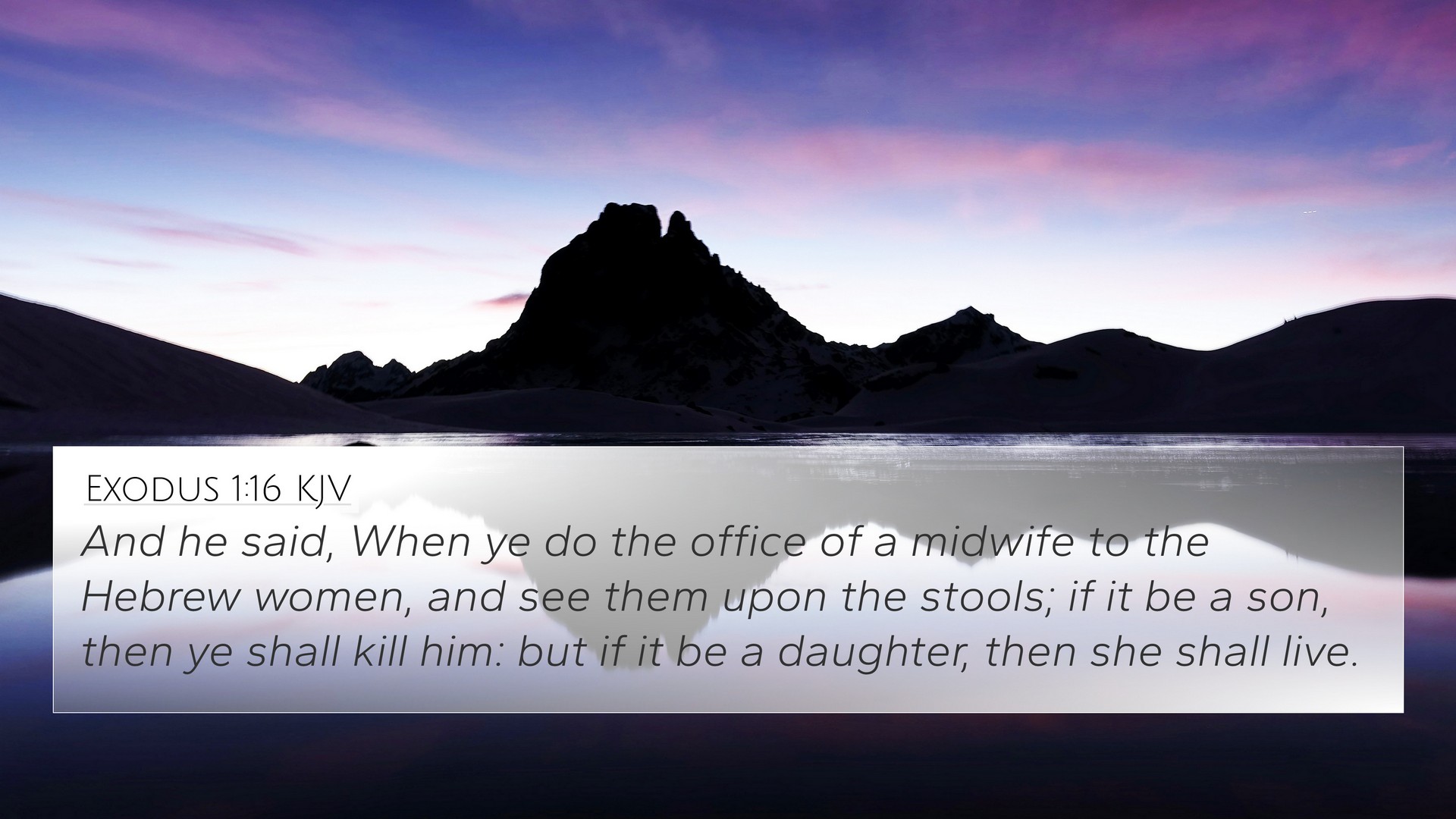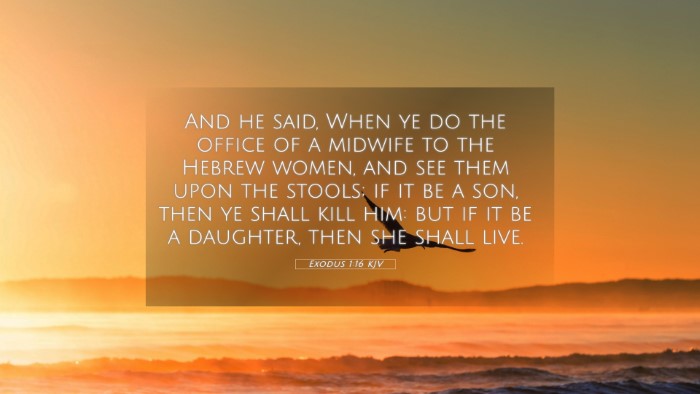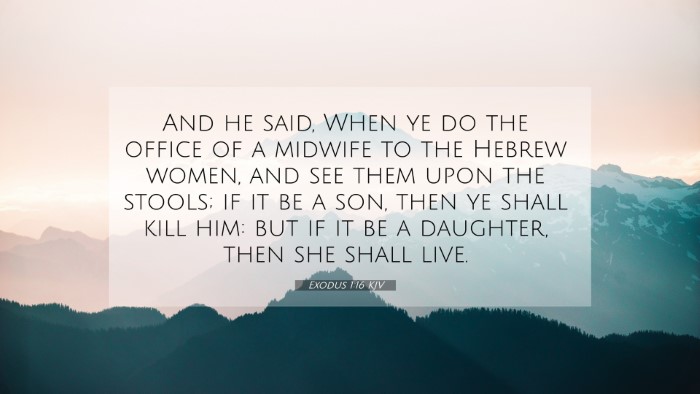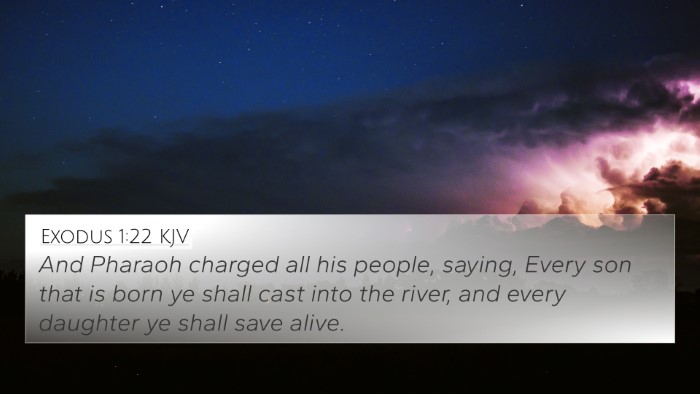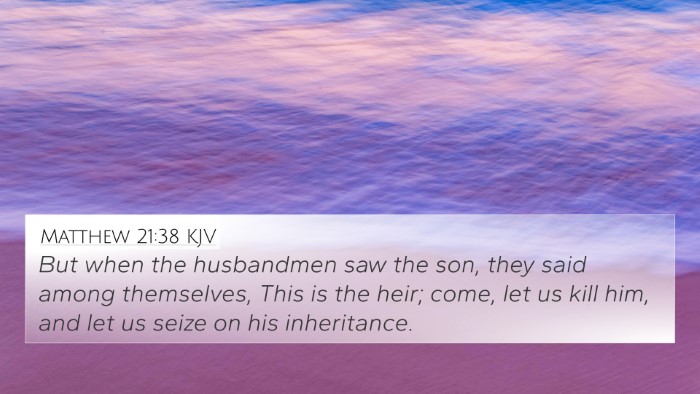Understanding Exodus 1:16
Exodus 1:16 states:
"And he said, When ye do the office of a midwife to the Hebrew women, and see them upon the stools; if it be a son, then ye shall kill him: but if it be a daughter, then she shall live."
This verse reveals the harsh edict issued by Pharaoh aimed at controlling the Hebrew population. It unveils the oppression faced by the Israelites and sets the context for the emergence of Moses as a deliverer. Let’s explore the meaning of this verse through insights from notable commentaries.
Commentary Insights
Matthew Henry’s Commentary
Impact of Pharaoh's Decree: Henry illustrates the cruelty of Pharaoh's command as a reflection of fear regarding the Israelites’ growth and potential uprising. He points out that the midwives were placed in a dilemma where their moral obligations conflicted with the law of the land.
Morality vs. Authority: The refusal of the midwives to obey Pharaoh is significant. Henry notes their discernment in disobeying unjust laws and emphasizes the importance of fearing God over men (Acts 5:29).
Albert Barnes’ Commentary
Role of Midwives: Barnes describes the position of midwives in ancient Egypt and underscores their unique responsibility during childbirth. He explains that this cruel edict was likely an attempt to stem growing numbers by targeting newborn males specifically.
God’s Sovereignty: Barnes highlights that even in oppression, God’s plan is at hand. The midwives’ actions, guided by their faith, lead to God's protection of the Hebrew children—an essential theme for future Biblical developments.
Adam Clarke’s Commentary
Historical Context: Clarke provides a historical insight into the social and political motivations behind Pharaoh’s command and emphasizes how it relates to the broader narrative of Israel’s suffering and eventual deliverance.
God’s Providence: Clarke notes that despite Pharaoh's intent, God's providential care for Israel is evident. The midwives’ fear of God led them to save lives, aligning with God’s promise to multiply His people.
Thematic Connections
This verse serves as a pivotal moment in illustrating the struggle for survival in the face of oppression. Below are some key thematic connections:
- Biblical Cross-References:
- Acts 5:29: "We ought to obey God rather than men." - Emphasizing obedience to divine authority.
- Psalms 105:24-25: "And He made His people very fruitful..." - God’s blessing on Israel despite oppression.
- Exodus 2:1-10: The birth and preservation of Moses, a direct result of the midwives' actions.
- Matthew 2:16-18: King Herod’s similar command against young boys reflects throughout Biblical history.
- Hebrews 11:23: The faith of Moses’ parents who hid him from the King’s decree.
- Revelation 12:4: A prophetic image of oppression against the people of God, similar to the treatment of Hebrews.
- Isaiah 54:17: "No weapon that is formed against thee shall prosper..." - God’s promise to protect His people.
- Luke 1:52-53: "He has put down the mighty from their thrones..." - God’s justice against the oppressors guards the oppressed.
- Romans 8:31: "If God be for us, who can be against us?" - Assurance of sovereignty in trials.
- Colossians 3:2: "Set your affection on things above..." - Encouragement for faith-based living amid oppression.
Conclusion
Exodus 1:16 serves as a poignant reminder of the moral dilemmas faced when human authority conflicts with divine commandments. The actions of the midwives embody steadfast faith amidst injustice, further illustrating God's overarching plan for His people. Understanding this verse and its cross-references enhances the reader's grasp of God's character, the theme of His deliverance, and the importance of aligning earthly actions with divine directives.
Exploring More Connections
For those interested in deeper study, consider exploring:
- How to find cross-references in the Bible
- Identifying connections between Old and New Testament
- Comparative study of Pauline Epistles
